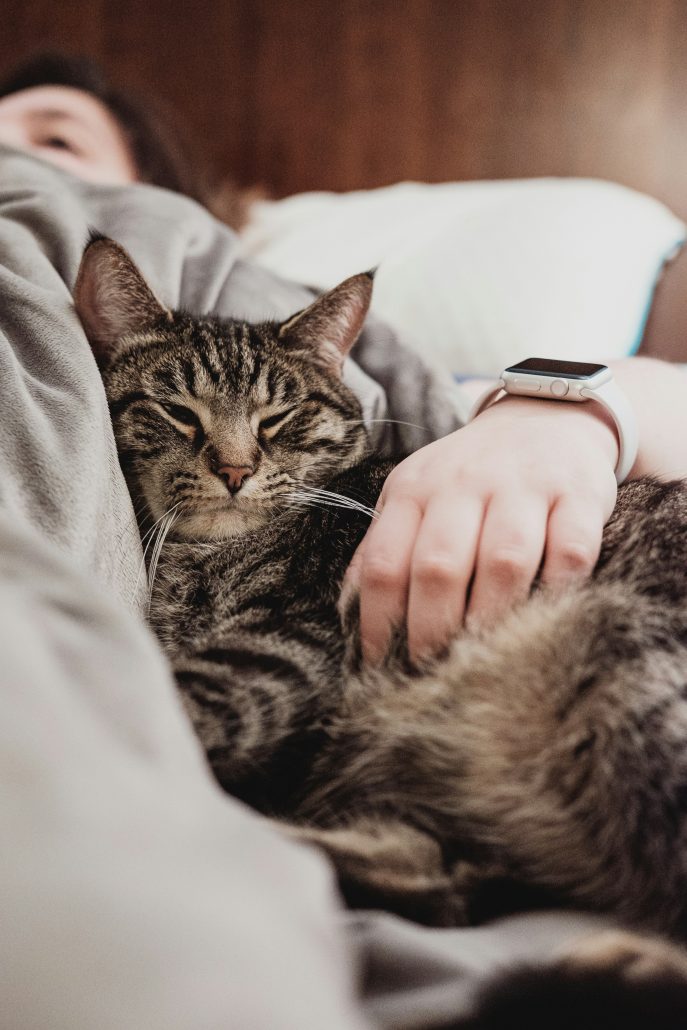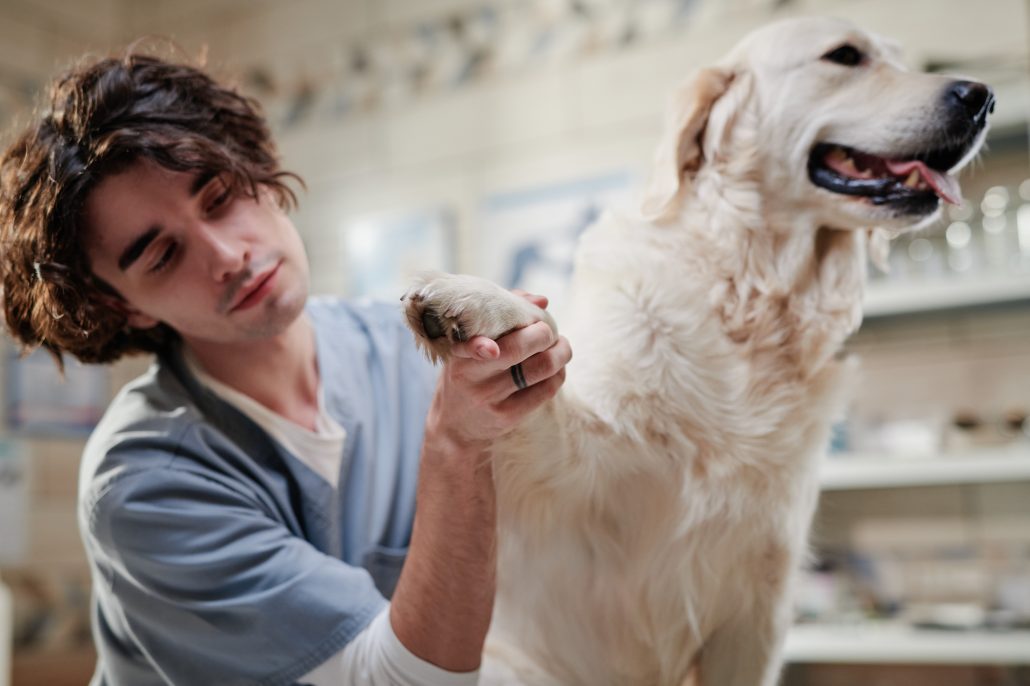
Did you know that one crucial aspect that keeps your furry friend jumping, playing and running around for longer is joint care? Just like humans, our pets can experience joint problems that can affect their mobility, comfort and overall quality of life.
In this post, we will explore the importance of joint care for pets and provide you with valuable insights and tips to help you support your pet’s joint health effectively. Whether you have a sprightly puppy or a seasoned senior companion, understanding how to care for your pet’s joints is essential for ensuring they lead happy, healthy lives.
Understanding the Importance of Joint Care for Pets
Every owner wants to see their companion live, long, happy and pain-free lives. Joints are the connections between bones, allowing for smooth movement and flexibility. Pets rely on their joints for running, jumping, playing, and everyday activities. So, when joint problems occur, it can lead to pain, discomfort, and restricted mobility.
By prioritising joint care for your pets, you’re not only helping them stay active and mobile but also preventing the progression of joint conditions as they age. With proper care and attention, you can help your furry friend maintain strong, healthy joints well into their senior years, allowing them to continue living life to the fullest!
Read More: Keeping Your Senior Dog Active: Tips and Strategies for a Happy and Healthy Furry Friend
Common Joint Problems in Pets
There are two varieties of joint problems that can affect our furry friends. These include:
Developmental Joint Issues
These issues are present in your dog from birth and are generally caused by genetic abnormalities that cause your pet’s joints to develop improperly during their early stages of life. If these are not properly treated or managed, your pet can develop conditions like elbow and hip dysplasia.
Many breeds are predisposed to some form of joint problem, which can cause considerable pain and discomfort. While these issues are more prevalent in larger breeds, they can also affect pups of any size. For instance, Rottweilers are known to be prone to knee and ankle joint problems due to their genetic predisposition.
Degenerative Joint Issues
On the other hand, degenerative joint issues are conditions that your pet may develop as they age. These are conditions like arthritis or osteoarthritis which develop as the cartilage between the joints are worn away.
Degenerative Joint Disease (DJD) can happen following a number of joint diseases, including infection, and may even develop after a bone or joint injury or surgery. Similarly, obese and overweight pets are more susceptible to developing issues as their weight places increased stress on their joints over time.

Signs and Symptoms of Joint Issues in Pets
There are several common causes of joint problems in pets. One of the most prevalent is osteoarthritis, which is the degeneration of joint cartilage. This can occur as a result of aging, obesity, or previous injuries. Another common cause is joint dysplasia, which is a genetic condition where the joints do not develop properly. Trauma, such as fractures or dislocations, can also lead to joint problems in pets.
As much as we would like our pets to speak, they cannot fully communicate their pain. Recognising the signs of joint issues in your beloved pet early on is crucial for providing timely intervention and ensuring their comfort and well-being. Here are some common signs and symptoms to watch out for:
- Limping or Lameness: One of the most noticeable signs of joint issues is limping or favouring one leg over the other. This can indicate pain or discomfort in the affected joint.
- Stiffness: Pets with joint problems may exhibit stiffness, especially after periods of rest or inactivity. You may notice them having difficulty getting up from lying down or reluctance to move.
- Decreased Activity Levels: If your pet suddenly becomes less active or reluctant to engage in their usual activities such as playing, running, or jumping, it could be a sign of joint pain.
- Difficulty Climbing Stairs or Jumping: Pets with joint issues may struggle with activities that require them to exert pressure on their joints, such as climbing stairs or jumping onto furniture.
- Visible Swelling: Swelling around the joint area can be indicative of inflammation or fluid buildup, commonly seen in pets with arthritis or other joint conditions.
- Changes in Behaviour: Joint pain can affect your pet’s mood and behaviour. They may become irritable, restless, or more withdrawn than usual.
- Audible Signs of Pain: Some pets may vocalize their discomfort through whining, whimpering, or groaning, particularly when they attempt to move or when pressure is applied to the affected joints.
If you notice any of these signs in your pet, it’s essential to consult with your veterinarian for a thorough evaluation and appropriate treatment plan.
Preventive Measures for Maintaining Joint Health in Pets
Ensuring the long-term joint health of your companion requires a proactive approach and consistent care – especially for older and pets predisposed to joint issues. As pets age, they become more prone to joint problems. Caring for senior pets with joint issues requires additional attention and care.
Here are some preventive measures you can take to maintain your pet’s joint health:
- Regular Exercise: Engage your pet in regular, low-impact exercise routines to keep their joints limber and maintain muscle strength. Activities like walking, swimming, and gentle play sessions can help support joint function without placing excessive strain on them.
- Maintain a Healthy Weight: Obesity is a significant risk factor for joint problems in pets. Help your pet maintain a healthy weight through a balanced diet and portion control to reduce the strain on their joints and minimize the risk of developing joint issues.
- Provide a Nutritious Diet: Ensure your pet’s diet is rich in essential nutrients that support joint health, such as omega-3 fatty acids, glucosamine, and chondroitin. Consider feeding them high-quality pet food formulated to promote joint health or incorporating supplements recommended by your veterinarian.
- Regular Veterinary Check-ups: Schedule routine check-ups with your local veterinarian to monitor your pet’s overall health, including their joint health. Early detection of any potential issues can lead to quick intervention and prevent the progression of joint conditions.
- Joint-Friendly Environment: Create a comfortable and joint-friendly environment for your pet by providing supportive bedding, easy access to food and water bowls, and minimising the need to climb stairs or jump onto high surfaces.
- Avoid Overexertion: Be mindful of your pet’s activity levels and avoid overexertion, especially in older. Allow them to rest when needed and provide opportunities for gentle exercise to prevent strain on their joints.
- Regular Grooming: Keep your pet’s nails trimmed prevent discomfort or interference with their movement.
- Supervise Playtime: Monitor your pet’s playtime activities to prevent excessive roughhousing or high-impact movements that could potentially injure their joints. Choose toys and activities that are suitable for their size, age, and physical condition.
Read More: 5 Tips for Stress-Free Dog Nail Trims

Safeguard Your Pet's Comfort and Mobility
Caring for your pet’s joints is an essential part of ensuring their overall health and well-being. By understanding the causes and signs of joint problems, implementing preventive measures, providing a nutritious diet, and incorporating exercise and joint-supporting supplements, you can help keep your furry friend’s joints healthy and strong. Remember to consult with your veterinarian for guidance and support throughout your pet’s joint care journey.
By taking proactive steps, you can ensure that your pet enjoys a happy and pain-free life and The House Call Vet is here to help! As a vet clinic passionate about pets, we are dedicated to providing comprehensive joint care solutions tailored to your pet’s specific needs. Whether it’s routine check-ups, personalized treatment plans, or expert advice on joint health management, our team is committed to supporting you every step of the way. Get in touch today to learn more!

